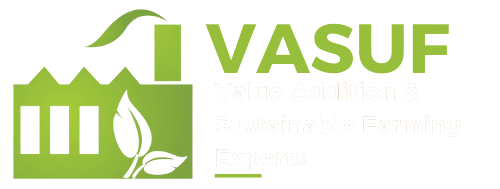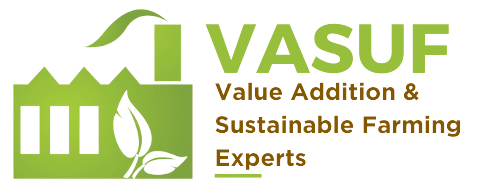Africa has 65% of the world’s remaining uncultivated arable land, an abundance of fresh water, and about 300 days of sunshine each year. More than 60% of Africa’s working population is engaged in agriculture, and the soil across most of the continent is rich and fertile. Modern agriculture, driven by technologies such as drought resilience, crop protection, and yield enhancement, can also contribute substantially to employment and wealth creation as well as to the improvement of health and nutrition on the continent. As such, agriculture is building the cornerstone of Africa’s economic transformation.
A) Agronomists on call for Advisory services;
We have been in the business of sustainable agriculture for a while; with a combined experience of over 20 years.
- Farm-Specific Advice – Access our network of experienced agronomists for farm-specific programs.
- Local Supply – Through strategic partnerships, We have a wide distribution of inputs and fertilizers in Africa & Beyond.
- Sustainable Farming – There is increasing pressure on chemical residues and interest in “softer” options to solve production problems. An important first step is to strengthen crops and improve soil health. Different soil types and crops require different programs to get the most from the soil and the crop.
- Interested in Organics? – Organic produce is in demand. We have a 10-year history of supplying quality products and programs to organic growers.
- Expertise – Our team consists of hands-on agronomists who have worked in the chemical industry with a combined experience of over 20 years.
Agronomy Tips…
- Soil Health – Energize- Healthy soils have strong levels of active carbon and diverse, active microbe populations. This results in good soil structure, strong nutrient availability, and less disease. Active carbon is an important component of good soil structure and leads to better root growth, water penetration, and retention. A healthy beneficial microbe population allows nutrients to remain available to plants for longer and reduces the incidence and severity of disease.
- Crop Protection – Defend- Pests and diseases can significantly damage crop quality and yield. It is vital to protect plants at critical early stages in their growth cycle to build the strength of the plant’s self-defense. Defensive support can be provided above and below ground. Defenses might include strengthening the leaf surface to help defend against attack from pests and diseases or colonizing roots or leaves with beneficial microbes that compete with pathogens.
- Crop Stress – Strengthen- Heat, frost, and drought can stress crops and force them into damage-control mode. The critical first 2-6 weeks of growth after planting sets up the productivity for annual crops like cereals, oils seeds, and row crops. Seed treatments can help seedling vigor that benefits crop yield and quality. Strengthening against stress improves resilience so crops can return to productive growth faster. This helps avoid increased input costs to compensate for lost growth.
- Fertilize – Balance- Plants thrive with optimal nutrient levels including NPK, Ca, trace elements, and minerals. Balanced crop nutrition supplies most nutrients through the soil and maintains soil minerals. Some highly soluble fertilizers damage beneficial soil microbe populations. Microbe-friendly fertilizers help fertilize your crop while strengthening soil microbes. High-yielding crops often struggle to get enough nutrients through root systems, so foliar fertilizers can assist if required.
B) Farmer Training
-Training on Good Agricultural Practices
-Training in Finance Management
-Training on Contract Farming
-Training on Sustainable Farming
-Training on Cross-Margin Analysis
C) Sustainable Organic Composting for your Farm-Build Better Soil Health
Compost is a way of returning safe, easily mineralized, organic matter, or humus, to the soil. Even though organic matter is a relatively small fraction of soil content, it can have a dynamic influence on the health of the soil as a whole.
Our Compost Production Services:
Our extensive Compost Consultancy Services include:
-Feasibility studies, including financial aspects and site assessment
-Quality control systems for producing quality compost
-Monitoring of compost quality
-Troubleshooting compost production problems
-Staff training packages – producing quality compost every time; soil organic matter management
-Compost facility establishment and management using a range of inputs including municipal solid waste (MSW), green waste, animal manure, cardboard, straw, abattoir waste and more
-Compost use in agriculture
-Marketing of compost to farmers
-Farm management plans integrating compost into cost-effective and sustainable farming practices
-Seminar speaker – soil organic matter management, compost production
D) Organic Soil & Tissue Testing
*Soil Mineral/Nutrient Analysis
Soil Analysis provides the basis for managing soil efficiently and providing nutrients for your crop. It is the first step towards biological farming, maximizing soil biological activity, building soil structure, and addressing future crops’ field limitations and nutritional demands.
Soil Analysis is a comprehensive analysis including soil minerals (Ca, Mg, K, Na), pH, EC, organic carbon, cation exchange capacity, chloride available P & K, S, B, Cu, Fe, Zn, Mn, Total C, Total N & Total P.
Our Soil Reports can give you full organic or integrated recommendations. If you want us to provide sustainable recommendations on your current soil results, email us with your results (no charge for this service).
*Tissue Analysis
One simple cost-effective way of ensuring the nutrients in the soil are being absorbed by the plant at appropriate levels is to analyze the plant tissue every year.
If taken at an appropriate time in the growing season this analysis combined with our expert interpretation will give growers peace of mind regarding the nutritional health of their crop.
Our Plant Tissue Analysis determines if the chosen fertilizer program is adequately providing the crop nutrients it requires and fine-tunes fertilizer inputs in the current season.
Predict nutrient problems before they cause production losses.
E) CROP PLANTING PROGRAM
Strong healthy root systems, nutrient availability, and water – these are the keys to successful and even crop establishment.
Our soil essentials planting programs are designed to protect that valuable initial investment and provide good early growth that is vital for longer-term production and profitability.
We have developed easy solutions that vary depending on crop type.
Crops under our planting programs:
- Potatoes/Onions/Capsicum/Cabbages/Tomatoes/ Sweet potatoes/Butter Nuts/Orchards/Vineyards/Fruiting Vegetables/Berrys/Almonds/Leafy Greens/Macadamias/Canola/Wheat


